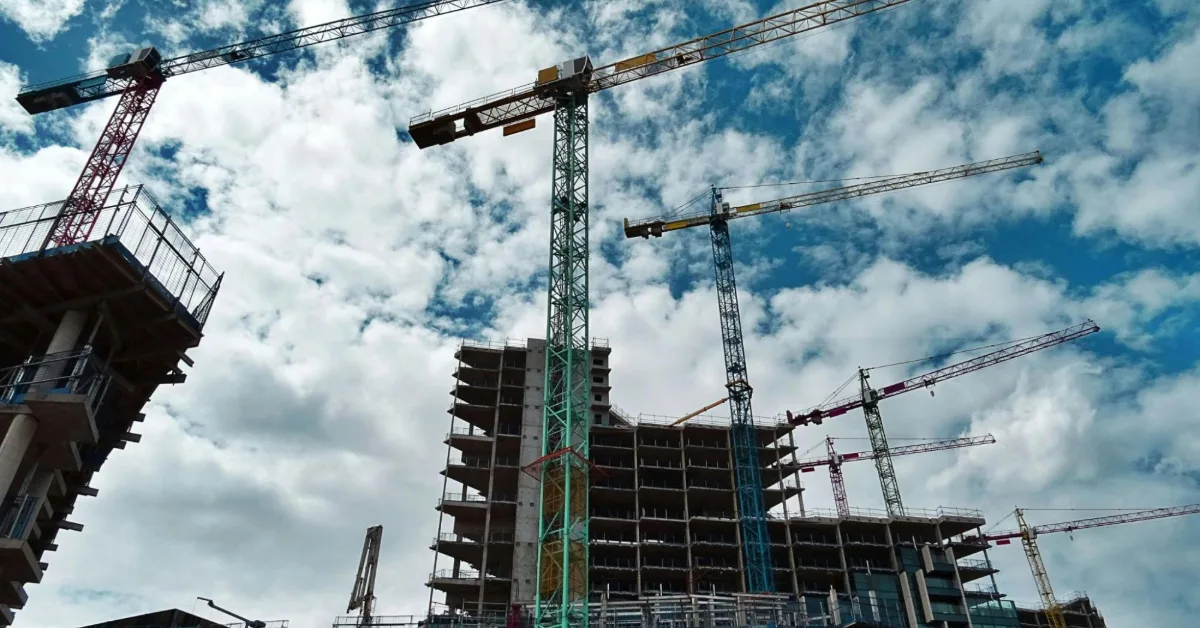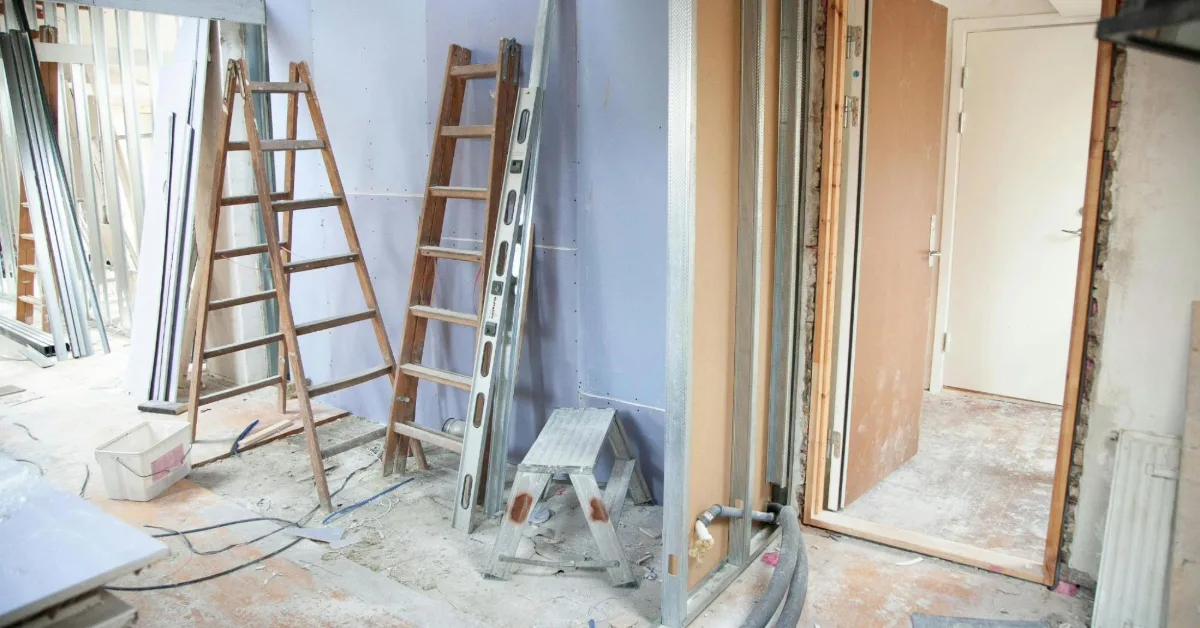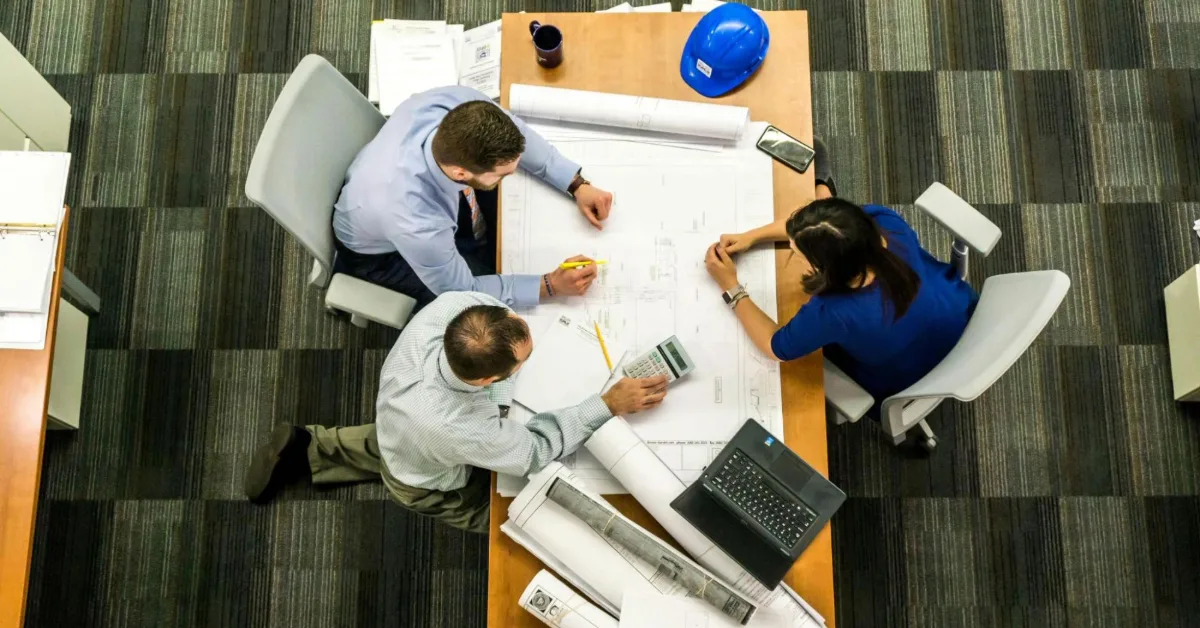Planning to kick off a construction project or launch a business in Dubai? You’ll need approval from the Dubai Municipality first. Getting Dubai Municipality approval is a crucial step for any construction or renovation project in the city. It ensures your plans meet Dubai’s strict standards for safety, zoning, and sustainability — helping your project run smoothly and stay compliant.
The good news? The approval process is now fully digital, making it faster and more efficient than ever. With AI-powered reviews and quicker turnaround times, getting the green light has never been easier — as long as your documents are complete and your submissions are clear.
This guide can help you navigate the entire approval process.
- Understanding the Dubai Municipality approval
- Why Dubai Municipality approval matters
- Approval document checklist
- Step-by-step approval process
- Overall project timelines based on building type
- Fees and payment options
- Common grounds for rejection
- Dubai building regulations
- Fast-track approval options
- Digitisation of the approval process
- Key takeaways
- FAQs

Understanding the Dubai Municipality approval
Dubai Municipality approval exists to protect the public. Whether you’re planning a small apartment upgrade or building a commercial tower, your project needs to meet all planning, structural, and environmental codes.
The approval process covers everything, from layout planning to fire safety and energy efficiency.
What’s new in 2025?
- Real-time tracking through online portals
- AI-based error detection for architectural drawings
- Stricter penalties for late submissions
- Shorter approval timelines by nearly 30%
As a developer or business owner, adapting to these changes is key to staying on schedule.
Why Dubai Municipality approval matters
Approvals prevent unsafe developments or unsuitable developments. According to the Dubai Statistics Centre, over 80% of plan rejections occurred in 2024 due to design flaws or code violations.
Consequently, getting the approval in the first instance can save you money.
Who needs Dubai Municipality approval?
Approvals are compulsory for new constructions or alterations to an existing property.
Top categories cover:
- Property owners extending or renovating villas
- Developers of new commercial or residential projects in Dubai
- Contractors handling demolitions or structural changes
- Business owners setting up restaurants, offices, or retail spaces
| Project Type | Approval Required |
| New buildings | Full building approval |
| Renovations | Needed for structural changes |
| Commercial fit-outs | Mandatory for zoning compliance |
| Demolitions | A permit is required for clearance |
Types of projects requiring Dubai Municipality approval
Not all projects are treated the same. Each comes with its own approval pathway:
Residential construction projects
You’ll need approval, whether it’s a villa, apartment complex, or just a swimming pool.
Officials check for:
- Zoning laws
- Safety codes
- Proper use of the space
Commercial building approvals
Cafes and offices must adhere to zoning regulations. Mixed-use properties are subject to additional scrutiny to ensure that residential and retail spaces are adequately accommodated within a single development.
Industrial facility permits
Warehouses and factories require environmental assessments. Additionally, any project involving hazardous materials is subject to a more detailed assessment before construction can begin.
Renovation and modification approvals
These include:
- Expansions
- Facade changes
- Interior modifications
Even cosmetic upgrades require municipality approval. This helps ensure a consistent cityscape.
Approval document checklist
Your paperwork must be complete. Even if one certificate is missing, your approval may be pushed back by weeks. Here is a document checklist:
| Document Type | Examples | Notes |
| Architectural plans | Site layouts and floor designs | Must be detailed, scaled, and digital |
| Legal proof | Title deed and NOCs from DEWA/RTA | Must be notarised and current |
| Consultant licences | Architect/engineer registration | Valid licences required |
| Environmental reports | Traffic and environmental impact | Needed for projects over 500 sqm |
All documents must be in PDF format. You also need to annex the summaries in Arabic and English. Additionally, stamped hard copies may be requested for further verification.

Step-by-step approval process
There are four main stages in the approval process:
1. Application submission
- Register on the Dubai Municipality portal
- Choose the correct project type
- Upload land title and initial drawings
- Pay the preliminary fee
2. Document verification
- Municipality officers review the file
- Missing documents or outdated licenses will be flagged within five working days
- Amendments need to be made promptly to avoid delays
3. Technical review
- Engineers review the designs for fire safety, sustainability, and zoning standards
- You will receive a report containing observations and corrections
- You’ll need to make updates within 10 days
4. Final approval and issuance
- Pay the final fee
- Receive a physical permit to post at the site
- Review conditions and deadlines carefully
Stage-wise timelines
| Phase | Timeframe |
| Application | 1-3 days |
| Document check | 5-7 days |
| Technical review | 10-15 days |
| Final Issuance | 2-3 days |
Overall project timelines based on building type
While the step-by-step process shows how long each stage takes, here’s how that adds up depending on your project type:
- Villas/apartments: 4-8 weeks
- Commercial spaces: 6-12 weeks
- Industrial facilities: 10–16 weeks
- Renovations: 2-4 weeks, more if structural changes apply
During peak submission times, typically in the first and last quarters, waiting times may be longer. So, consider submitting early to avoid delays.
Fees and payment options
Project approval fees
Budgeting for your project? Make sure you’re aware of the latest fees:
Residential projects
- Villas and townhouses: 50 AED per sqm
- Apartments: 75–100 AED per sqm
- Pools: Starting at 2,000 AED
- Landscaping: 10–15 AED per sqm
- Boundary walls: 50 AED per metre
Commercial projects
- Retail units: 100–150 AED per sqm
- Office towers: 120–180 AED per sqm
- Hotels: 150–250 AED per sqm
- Mixed-use buildings: Based on floor area ratios
Projects exceeding 10,000 sqm attract infrastructure impact fees. It is approximately 2% of construction costs.
Payment options
You can make the payments via:
- Online portal with credit/debit cards
- Direct transfers to partner banks
- Cash or cheque at customer service centres
- Mobile app or e-invoice payments

Common grounds for rejection
Some mistakes from your end may become the reason for rejection. Top issues include:
Documentation errors
- Unsigned or unstamped forms
- Expired NOCs
- Mismatch between drawings and site surveys
Design nonconformance
- Plot coverage beyond legal limits
- Missing emergency exits or accessible features
- Building height exceeding zoning rules
Tips to avoid rejection
- Double-check the municipality checklist
- Use free pre-submission review sessions
- Work with licensed consultants
Dubai building regulations, 2025
Recent updates strengthen sustainability and safety requirements.
- Green standards: Commercial buildings must have solar panels and water-saving systems.
- Fire safety: High-rises must use fire-resistant materials and incorporate automatic sprinklers.
- Zoning rules: Height limits are enforced in districts like Dubai Silicon Oasis.
- Accessibility: Public buildings must include ramps, wide corridors, and braille-equipped lifts.
- Structural resilience: Structure must be designed considering extreme weather and coastal conditions.
All projects over 5,000 sqm require a detailed environmental impact assessment.
Fast-track approval options
Certain projects qualify for quicker approvals.
Eligibility
- Government-backed development projects
- Foreign investments exceeding 5 million AED
- Developments in free zones
- Strategic projects under Dubai Vision
Types
- Standard fast track: Fees are about 30 to 50% higher. It is almost 50% faster.
- Ultra-priority: Fees can be up to twice as much. The timeline is reduced by 75%.
While expensive, the extra fee makes sense if you have to begin construction early.
Digitisation of the approval process
Dubai has digitised the building permit system. Top benefits for you include:
- Real-time project updates
- Opportunity to engage in direct communication with reviewing engineers
- Secure system with digital signatures
- Mobile app for notifications and document scanning
- 24/7 access to your project dashboard
Key takeaways
The Dubai Municipality approval framework was revised in 2025. Applications are now submitted online, with safety and sustainability as core considerations. However, incomplete paperwork is the primary reason for rejection. Understand the requirements immediately to avoid delays and stay on budget.
FAQs
Most residential projects take 4-8 weeks. Industrial projects can take up to 16 weeks.
No, you can’t start work without approval may lead to fines, penalties, or even a complete shutdown.
You don’t have to worry; all you need is to fix the issues and reapply. Hiring a consultant can help avoid repeated rejections.
Yes, they are required. Usually, any visible change or structural alteration will need a municipal clearance.
In 2025, you can do almost every step of the Dubai Municipality approval process online. However, on-site inspections are still necessary.